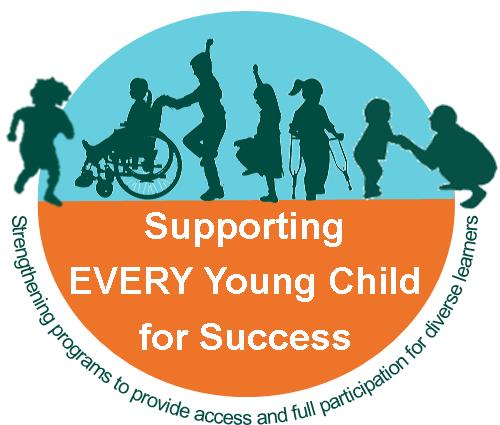Blog

- Details
by Deb Green, director, Parent-Infant Center
Last fall, I was so excited to get the letter saying that our Parent-Infant Center (PIC) grant application to the Fund for Quality (FFQ) had been accepted by the Reinvestment Fund and Public Health Management Corporation (PHMC). This funding would enable us to open two new classrooms and increase the number of children enrolled in our PreK Counts program to 45, helping us meet our goal to increase access to high-quality care for families from all socio-economic levels.
The first step in the process was the planning phase. Being the forever-impatient person that I am, I admit, I rolled my eyes a bit as I read through the tasks that needed to be completed during this initial phase. I consider myself a “seasoned” (a.k.a “old”) early childhood professional, with years of experience in managing many types of programs. This was surely not my first expansion or construction project, and undoubtedly would not be my last. I thought “planning” would simply be another hurdle to get over.
We were quickly matched with two consultants to guide us through our planning. Margie DuBrow was assigned to be our lead consultant. Margie has many years of experience guiding leaders of non-profit programs, and within minutes I found her asking questions about organizational structure that I could not immediately answer. Her questions required a lot of reflection on my part. She interviewed each person on our administrative team and discussed the results of those conversations with me. She led me through conceptualizing several models of administrative management, all involved out-of-the-box thinking that I simply had never taken the time to do. With Margie’s expert guidance, our Board President and I crafted a short-term Strategic Plan that would guide the Board through our expansion project.
I still find myself reflecting on the topics she introduced to stimulate our discussions. I found Margie to be experienced, smart, kind and simply a pleasure with whom to work.
Or second consultant, Bill Grant, served as our financial consultant. I quickly realized that he had more knowledge about the ECE field in his fingertips than I had learned over my entire professional life. Bill responded to the requests of our Board and helped create what seemed like 100 different financial models. We looked at every possible financial scenario in order to have a very clear picture of where we were going and how we would get there. While Bill was assigned to be our financial consultant, he generously shared his expertise on everything from reviewing architectural plans to the best options for floor products. He even met with us to gain an understanding of how to better utilize the PreK tax credit. Bill’s knowledge of everything early childhood is long and deep and our gains are immense from having had the chance to work with him.
By the time we completed the planning process, I was sad to say goodbye to our consultants, Margie and Bill. I surely hope our paths will meet again. My initially impatient- and skeptic-self gained a new perspective. Working and thinking together with others outside of my own organization allowed multiple perspectives, all of which were important to see and hear. The planning process allowed us to be better prepared to move into the implementation phase of the project and we are simply a stronger organization because of this preliminary work we did.
Our new classrooms are now open and we are so proud of our accomplishments. We are forever grateful to the folks at the Fund for Quality for their support.
The Fund for Quality (FFQ) is a partnership between Reinvestment Fund and Public Health Management Corporation (PHMC), supported by funding from the William Penn Foundation, and Vanguard Strong Start for Kids Program™. Through the provision of business planning support and facilities-related financing, Fund for Quality supports high-quality early care and education providers with expanding their services to reach more low-income families.

- Details
By Laura Sosinsky
Working during the evening, overnight, or weekend has become so common – the “new normal” – that labels like “nonstandard” or “nontraditional” may no longer fit these schedules. Nationally, 20% of the workforce works at night or on the weekend. Among low-income or low-wage hourly workers, the rate is between 28% and 50%. Women are more likely than men to work nonstandard hours, especially women with low incomes. Many have young children in need of care while they work. In Philadelphia, over 4,000 children receiving child care subsidies (or 10% of all children receiving subsidized child care) are in care between the hours of 6:00 pm and 6:00 am.1
Many workers in these jobs also face volatile, unpredictable scheduling. Nationally, about half of the nearly 30% of low-income mothers of children under 6 who work nonstandard hours are on irregular schedules. Over one-third of children, and nearly half of Hispanic children, in low-income households have a parent who receives their work schedule less than one week in advance.
The vast majority of parents (72%) who work these schedules do so because of the demands of the job rather than by choice. Employment sectors requiring these hours include jobs in retail, restaurants and service sectors, security, health care, and jobs at plants and in warehouses. Students and members of the military also face child care challenges due to schedules that are not 9-to-5.
- Details

The Early Childhood Action Collective at PHMC is launching a new initiative, Supporting EVERY Young Child for Success. The purpose of this initiative is to support ECE programs to provide access and full participation to diverse learners in Philadelphia. This initiative will be supported by several activities. We have a couple papers in the works to share research findings and demonstrate how inclusion practices impact suspension and expulsion rates.
To kick-off Supporting EVERY Young Child for Success, we are seeking nominations of programs in Philadelphia that exemplify the spirit of inclusion. Anyone can make a nomination including directors, teachers, coaches, consultants, early intervention service providers and parents. Do you think your program does a great job supporting every child? Directors and teachers are highly encouraged to nominate their programs!!
Nomination requirements: any ECE program operating in Philadelphia that exemplifies the following principles:
- All young children belong.
- All young children can learn.
- Inclusion is a critical component of high-quality care.
- Inclusion encompasses all aspects of diverse learners-typical, social-emotional, IFSP/IEP, physical, race, culture, poverty, homelessness and more.
CLICK HERE to complete a short survey when you’re ready to make your nomination. Nominations will close on Monday, January 15th at the end of the day (11:59 PM). Nominated programs will be notified after that date. Semifinalists will be contacted to schedule a face-to-face visit to show off their programs and finalists will be announced by early March.
Nominated programs that move to the semifinalist stage will be recognized and will receive a kit to assist with making adaptations for children. Semifinalists will be included in highlighted solutions and best practices. Finalists will participate in a panel discussion at a culminating event in March 2018 and will be highlighted on the website and in the resource bank.

- Details
In recognition of World Aids Day, let’s pause to remember how HIV affects mothers and children. According to the Centers for Disease Prevention and Control (CDC), in the U.S.:
> Approximately 8,500 women living with HIV give birth annually (based on an estimate from 2006, the most recent available).
> Social and economic factors, especially poverty, affect access to all health care and disproportionately affect people living with HIV.
> Of the 1,995 children1, living with diagnosed perinatal HIV at the end of 2014, 1,288 (65%) were black/African American, 294 (15%) were Hispanic/Latino2, and 226 (11%) were white.
Fortunately advances in HIV research, prevention, and treatment have made it possible for many women living with HIV to give birth without transmitting the virus to their babies. In fact, since the 1990’s HIV infections through perinatal transmission have been reduced by more than 90%. Today, if a woman and her newborn receive recommended treatment throughout pregnancy and after birth, the risk of transmission can be 1% or less.
However, the CDC cites several challenges still remain including lack of information, the timing of treatment, and access to treatment. Visit the CDC website to learn more about HIV Among Pregnant Women, Infants, and Children.
For a global perspective, you can read UNAIDS Children and HIV Fact Sheet
1 13 years of age or younger
2 Hispanics/Latinos can be of any race
Sign Up for Our Mailing List
If you'd like to be notified when we have upcoming releases or events, please subscribe to our email list.
* indicates required